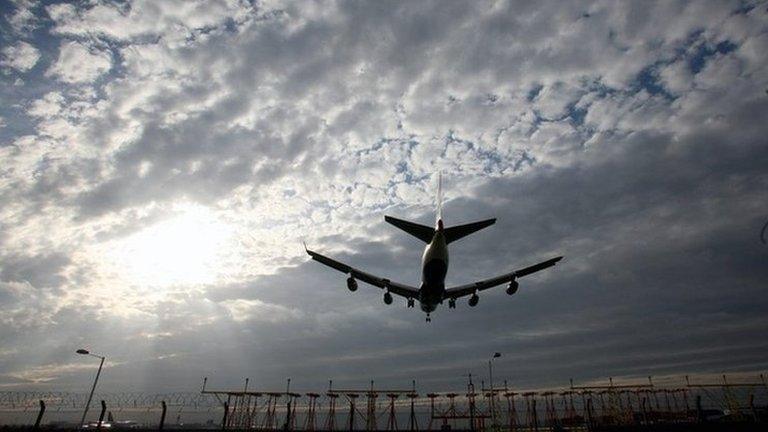Heathrow in my backyard: Living in the shadow of a new runway
- Published
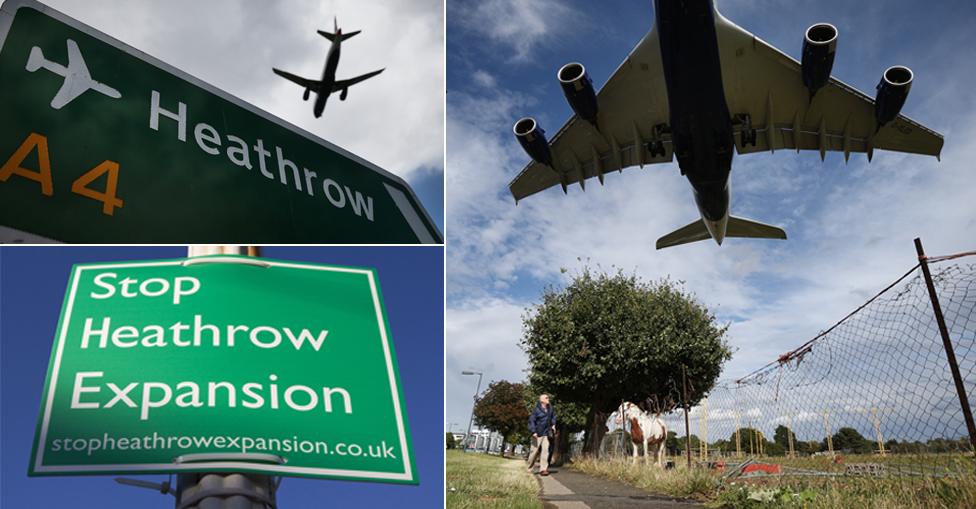
Thousands of people in west London face a dramatic change to their lives and livelihoods if the government decides a third runway should be built for Heathrow Airport to meet the UK's air capacity needs. The BBC's Gareth Furby and Josephine McDermott met the people sacrificing their crops and patios, and even taking the law into their own hands.
Heathrow in my backyard: Living in the shadow of the runway
While local residents were hoping for a decision on Heathrow expansion by the end of the year, it now seems Prime Minister David Cameron is likely to ask for a new environmental review, which would push a decision into next year. In the meantime, people living in the area carry on their daily lives, not knowing what the future holds.

The protester: Neil Keveren
Neil Keveren says "If they threaten our homes we'll defend them to the end".
Builder Neil Keveren invites me for tea in the lounge of his pretty 19th Century coach house. As he hands over a mug his hand is shaking. He is passionate and angry.
"I have a very strong feeling of right and wrong," he says. "And I don't like liars."
The vitriol of Mr Keveren, 54, is directed at the people he believes have turned his life into a battle for survival - the owners of Heathrow Airport, and prime minister David Cameron.
Ten years ago, after a divorce, he bought the coach house in Harmondsworth village for just under £200,000.
"I felt like I was coming back home," he says. "This is where I was born. My grandparents worked this land. My nan was out cutting cabbages, and my granddad was planting leeks behind the tractor."
In 2009, after David Cameron's election pledge to block a third runway, Mr Keveren decided to develop his property, adding a bedroom, a bathroom, and even a music room. It's now a four-bedroom house, valued at about half a million pounds.
"If the runway goes ahead, from my kitchen window, I will be looking out at the airport's new boundary fence," he says. "I look out on a close, and at the end of that is where the wheels of the aircraft will touch down."
He says he has always been law-abiding. But in July, he used his van to block the road tunnel to Heathrow terminals 1, 2 and 3 for about 20 minutes, causing frustration for passengers caught up in the traffic jam.
He was later fined £600, but has no regrets.
He has been banned from Heathrow Airport's property, but he vows: "I am not letting a foreign-owned company take my home, and my history."

Plans for North-West runway at Heathrow


The farmer: Colin Rayner
Farmer Colin Rayner will lose the field he's standing in if a third runway is built.
Colin Rayner's history is family lore. They have farmed the land around Heathrow since the start of the 17th Century.
His grandfather's generation used to own some of the land which now makes up the airport. It was requisitioned by the government for the post-war reconstruction effort in 1947. His father even farmed the land between the runways, driving tractors over them, until that was stopped in the 1950s.
We stand in a 20-acre field of oil seed rape with Stubbings the Westie darting about. Under the plans, the field will become part of the airport - the space between the north runway and the new third runway.
The pair spends a lot of time driving between the 2,000 acres of land Mr Rayner owns and rents from 21 different landlords - intersected as it is by motorways, railways and runways servicing the UK's busiest airport.
Despite the challenges, he says about five or six farmers will have their livelihoods changed if a third runway comes. Surprising as it may be, they still compete each year at the agricultural show for the best crop of wheat and the best goat.
"You get to know the flights. That's the Israeli one," Mr Rayner, 55, remarks casually as the sound of 450 tons of airliner being propelled into the air echoes around.
A Conservative councillor in the neighbouring borough of Windsor and Maidenhead, he believes whatever party was in power would have had to make the decision to expand Heathrow in the national interest.
"It's chicken and egg. If it wasn't for the airport we wouldn't be here because the airport helps subsidise our farming by giving us work and we rent out some of our property to airport workers. We wouldn't be here without the airport but the airport then impacts on our business.
"My father's generation worked really really hard to keep farming in this area. I think my generation may be the last."
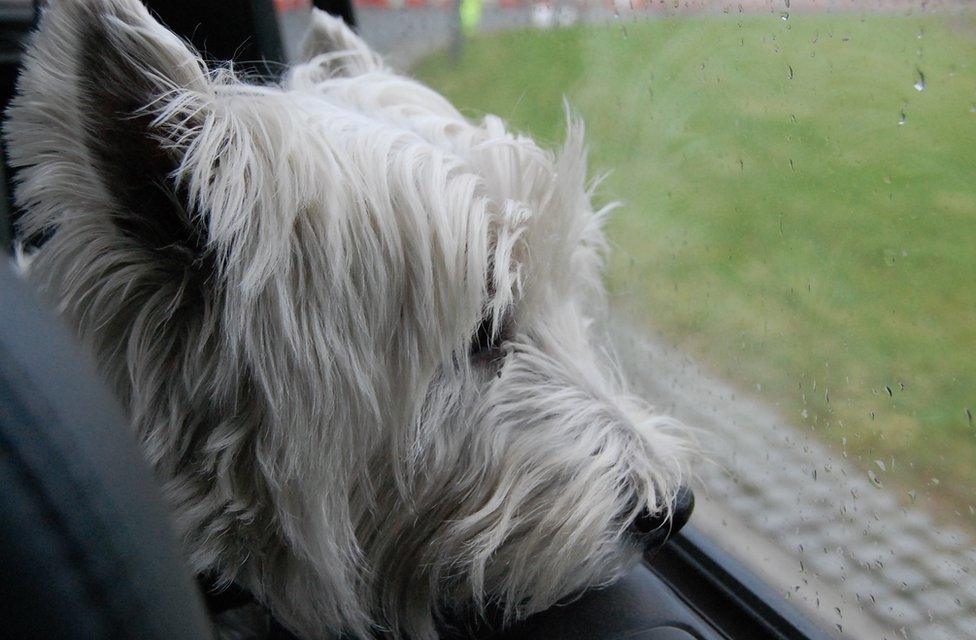

What are local people being offered?
How close a property is to the new runway determines how much compensation residents will be offered. Owners of about 750 properties in Longford and parts of Sipson and Harmondsworth are covered by the compulsory purchase area scheme (shown in dark blue in the map below) - which offers 25% above market value plus legal fees and stamp duty costs for anyone whose home will be compulsorily purchased.
But about 3,750 homeowners in Poyle, Colnbrook, Brands Hill, Harmondsworth, Sipson, Harlington and Cranford Cross (in the lighter blue area) will be offered the choice of either staying in their homes next to the new runway - or selling up at 25% above market value once the runway has been built.
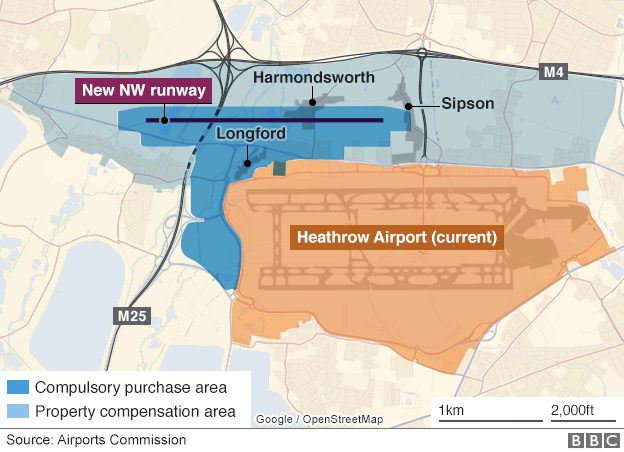

The airport worker: Leon Jennion
Airport worker Leon Jennion will lose his house for the third runway.
Leon Jennion knows all too well that Heathrow Airport is operating at maximum capacity. He works there and sees how "horrible" it is for passengers when one of the two existing runways has to close, for whatever reason.
But living in Longford, within the compulsory purchase area, he is going to have to sacrifice the house he bought more than 20 years ago, complete with the patio he put down with his father.
His "little hamlet", close to work, has been victim to blight for 10 years. He says it got worse when a businessman with a hotel interest bought low price houses from 2006 to serve as overspill accommodation.
Mr Jennion says the community spirit has been affected in recent years by some properties being used to accommodate asylum-seekers and people in transit to the airport who "come and go on a nightly basis".
"I just want to have that decision made quickly and I can get on with a new life somewhere else."
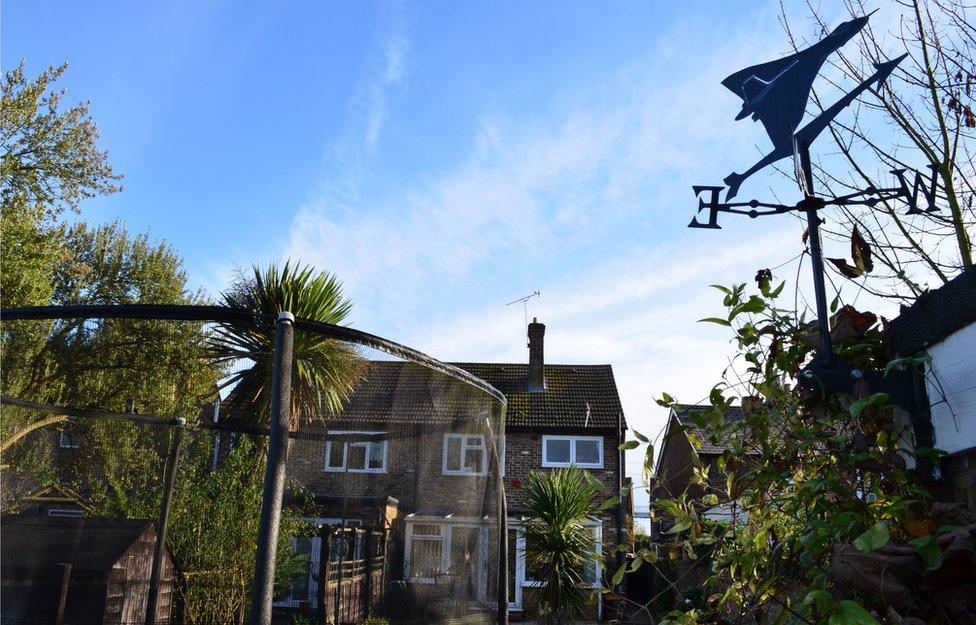
Leon Jennion and others in Longford are waiting to find out when they will have to move

The local businesswoman: Jackie Clark-Basten
Jackie Clark-Basten runs a hairdressers in Sipson.
Meanwhile, the salon of Jackie Clark-Basten, 43, in the nearby village of Sipson, will not be demolished for the runway but will find itself under the new flight path.
"The noise is going to be unimaginable for me," she says. "It will destroy my life, my business, and everything I know here in Sipson."
Her salon and flat are outside the compulsory purchase area and she would have to wait until the runway was built to take advantage of the compensation on offer - in the meantime, many of her customers could have been relocated or moved away.
"I just feel my life is in limbo," she says.

Production: Dominic Bailey and Tom Nurse
Photo of Neil Keveren supplied by Stop Heathrow Expansion
- Published7 December 2015
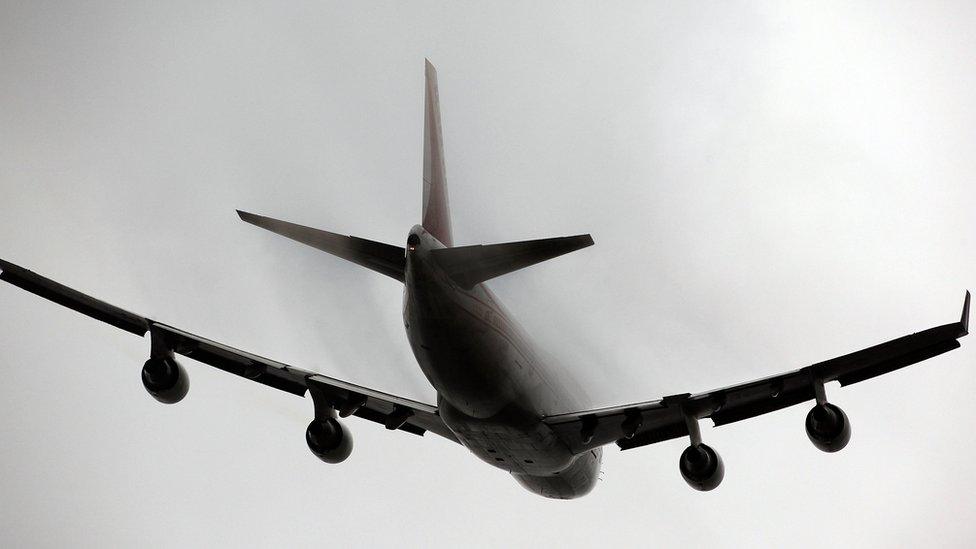
- Published1 December 2015
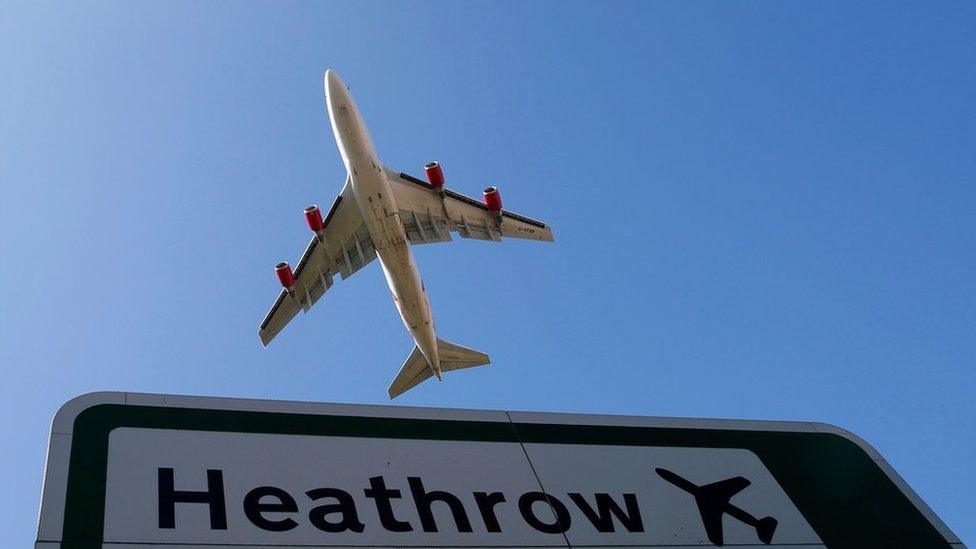
- Published26 November 2015
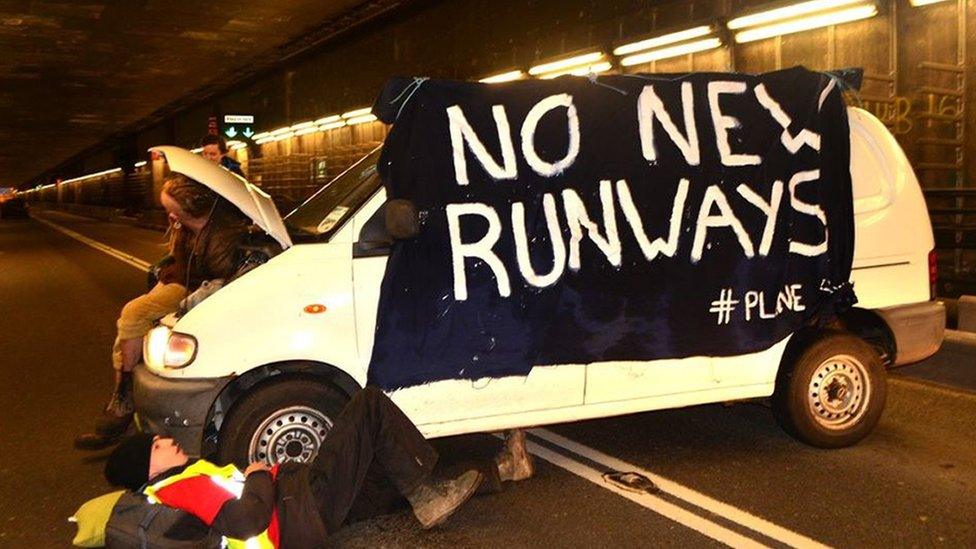
- Published1 July 2015
